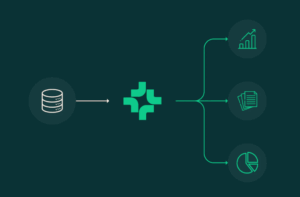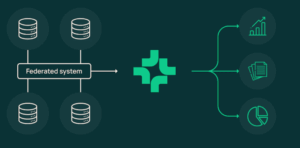
Credit: allenai.org
Throughout analysis labs, structured knowledge retains piling up—spreadsheets crammed with outcomes, logs from devices, tables that develop with each undertaking. A lot of it by no means will get totally explored as a result of the evaluation takes time and sometimes requires specialised abilities. Science has the information, nevertheless it doesn’t at all times have an easy or environment friendly technique to hearken to what it’s saying.
The Allen Institute for AI (Ai2) is tackling that drawback with a new software referred to as Asta DataVoyager. As an alternative of relying on complicated scripts or customized workflows, it lets scientists question datasets in plain language and get again solutions that embody visualizations, code they’ll run themselves, and a documented document of the steps taken. The objective is much less about flash and extra about making evaluation clear and reproducible.
Asta DataVoyager breaks every request right into a sequence of steps that kind a working document of the evaluation. When a researcher asks a query, the system provides the consequence to that document, and any follow-up adjustments are saved in sequence. If a researcher needs to attempt a brand new take a look at or deal with outliers in another way, these edits don’t erase what got here earlier than. They’re added on, so the document reveals every step because the work builds. Over time, the report creates a path—what was requested, what was modified, and what held up. That type of historical past makes it simpler for colleagues or reviewers to observe the reasoning and decide the work for themselves.
Ai2 CEO Ali Farhadi mentioned the goal is to ensure scientists can lean on the system with out dropping confidence in what it produces. “AI can solely speed up science whether it is as rigorous and clear as science itself,” he mentioned.
The Allen Institute for AI was based in 2014 by Microsoft co-founder Paul Allen with the mission of pushing synthetic intelligence in ways in which serve science and society. Since then, the nonprofit has launched open fashions and analysis platforms constructed to make AI extra accessible exterior the tech business.
Asta DataVoyager is the most recent step in that effort, and its first main take a look at is available in a high-stakes setting: most cancers analysis. By the Most cancers AI Alliance (CAIA), 4 main facilities are piloting the system to investigate de-identified affected person knowledge throughout establishments, searching for insights into remedy outcomes that may be tough to floor with conventional strategies.
Jeff Leek, chief knowledge officer at Fred Hutch and scientific director of the alliance, mentioned the true promise is giving clinicians a software they’ll use straight. “Once I take into consideration the way forward for the place I would like it to go, I take into consideration this software within the arms of clinicians, serving to to reply essential questions that may guarantee the very best look after most cancers sufferers,” he mentioned.
What makes the CAIA undertaking notable is the way in which the information is dealt with. As an alternative of pooling affected person data in a single location, the alliance makes use of a federated strategy: the fashions transfer to every most cancers heart, be taught from native data, and return solely aggregated outcomes. Particular person data by no means depart institutional partitions. For clinicians, this implies they’ll draw on a wider base of proof with out compromising affected person privateness, a requirement that has usually slowed progress in cross-institution research.
One of many first research below approach appears to be like at lung most cancers therapies. Researchers are how sufferers reply below totally different remedy plans. They’re learning questions like how lengthy to attend earlier than surgical procedure after chemo-immunotherapy, what occurs when immunotherapy is added after radiation, and whether or not focused medicine enhance survival in contrast with normal platinum chemotherapy. These sorts of comparisons usually want knowledge from a number of hospitals, which is why they’re so arduous to do with older strategies.
Exterior the alliance, the Paul G. Allen Analysis Middle at Swedish Most cancers Institute can also be testing DataVoyager. There, the main focus is on giving physicians with restricted data-science coaching a technique to ask their very own questions of structured well being data. If these pilots succeed, Ai2’s software might mark a step towards making complicated knowledge evaluation routine in on a regular basis scientific follow.
Earlier this yr, the Nationwide Science Basis and NVIDIA pledged $152 million for a undertaking run by the Allen Institute for AI referred to as Open Multimodal AI Infrastructure. The goal is to create totally open fashions that may work throughout various kinds of knowledge, from textual content to pictures, and make them obtainable for scientific use. For Ai2, it’s one other approach of backing its core perception that openness drives progress. The identical concept runs by DataVoyager—giving researchers instruments that make knowledge easier to work with, simpler to share with others, and dependable sufficient to construct on in critical analysis.
Associated Gadgets
Knowledge is on the Middle of Scientific Discovery Inside MIT’s New AI-Powered Platform
NASA’s Metadata Undertaking Expands Entry to Vital Science Knowledge



